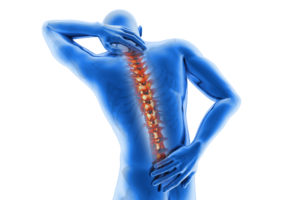For those living with peripheral neuropathy, life can be not only painful but frustrating. This frustration is often due to the common need for patients to “doctor shop” in order to find the right specialist for them. Patients need effective peripheral neuropathy treatment and pain management solutions for this potentially debilitating condition.
At Non-Surgical Spine Center, we have found the most effective ways to bring treatment to our patients. Once you come in for a consultation, you can start treatment and not feel the symptoms you’ve struggled with for a long time. There is very little downtime, so you can get back to doing what you love.
What is Peripheral Neuropathy?
Your peripheral nerves are responsible for carrying messages from your brain and spinal cord to the rest of your body, including your organs, muscles, and other tissues. When these nerves are damaged or diseased, this condition is known as peripheral neuropathy.
Sometimes the damage affects one nerve, and sometimes multiple nerves throughout the body are affected. The latter condition is known as polyneuropathy. Due to nerves being made of different types of fibers that affect movement sensation, balance, or pain, symptoms vary according to the type of nerve fiber involved.
What Are The Types and Causes?
- Inherited neuropathy
- Diabetic neuropathy
- Autonomic neuropathy involves involuntary body functions, such as digestive function, breathing, and blood pressure regulation.
- Trigeminal neuralgia involves the nerve bringing sensation to the face, eyes, and jaw area.
- Medication side effects
- Vitamin deficiency
- Traumatic injury
- Infections, including HIV
- Excessive alcohol use
- Immune disorders and diseases
Among the types of peripheral neuropathy, diabetic neuropathy is the most common, affecting two thirds of type 1 and type 2 diabetes patients. We characterize this type by lack of sensation in the feet and legs, as well as foot ulcers and infections.

What Are The Symptoms of Peripheral Neuropathy?
Signs and symptoms of peripheral neuropathy can manifest in various ways, affecting different parts of your body.
- Pain
- Numbness
- Tingling
- Burning sensation
- Hypersensitive skin areas
- Lancinating, or shooting, pain
- Hair loss on affected area
- Weakness
- Shiny skin
- Muscle atrophy
If you are experiencing more than one of these symptoms, it may be time to seek a medical professional for the diagnosis and treatment of peripheral neuropathy.
How Do You Get A Diagnosis?
The most important thing involved in the diagnosis of peripheral neuropathy is a detailed medical history. A physical exam follows that may include measurement of glucose levels, blood testing, nerve conduction studies, a lumbar puncture, and an electromyogram (EMG). An EMG is an electrical test of muscle function. An in-depth evaluation is necessary to truly determine the root causes and how best to treat them.
What Is The Treatment?
Although the majority of peripheral neuropathies aren’t curable, most cases can be improved with treatment. One can correct vitamin deficiency with a balanced diet and supplements. In addition, regulation of blood glucose levels can slow down the progression of diabetic neuropathy, and some medications for depression or seizures may improve sensory symptoms.
What Is the Best Treatment for Me
It can take some real investigation on the part of your peripheral neuropathy treatment professional to design and execute the best treatment approach(es) for you personally – as well as the help of some amazing technological advances, including Scrambler therapy, an innovative, non-surgical treatment for neuropathic pain conditions, including chemotherapy-induced peripheral neuropathy and diabetic peripheral neuropathy, among others. Check out this link for studies on Peripheral Neuropathy.
The symptoms of peripheral neuropathy are scary and can reduce the quality of your life. However, there are new, innovative nerve pain treatments and chronic pain management approaches that can make your peripheral neuropathy treatment in Charleston successful and get you on the road to a pain-free life.

Share